The blood vessels for human body are as important as roads for transportation. When the blood vessels are blocked (also known as atherosclerosis), “car accidents” will happen in the body. Clogged arteries will cause chest pain, leg pain, and dizziness. Even worse, it can cause stroke and heart attack, even death. What is the cause of the clogged arteries? What is the relationship between hypertension and clogged arteries? How to prevent clogged arteries in our daily life?
Causes of Arteriosclerosis
Arteriosclerosis is caused by the accumulation of a substance called plaque on the inner wall of an artery. These include calcium, fat, cholesterol, cellular waste, and fibrin, a material involved in blood clotting. Arterial plaques can reduce blood flow, or in some cases completely block blood flow. While the damage to the vascular wall is considered to be the cause of plaque deposition. The factors cause formation and deposition of plaque are:
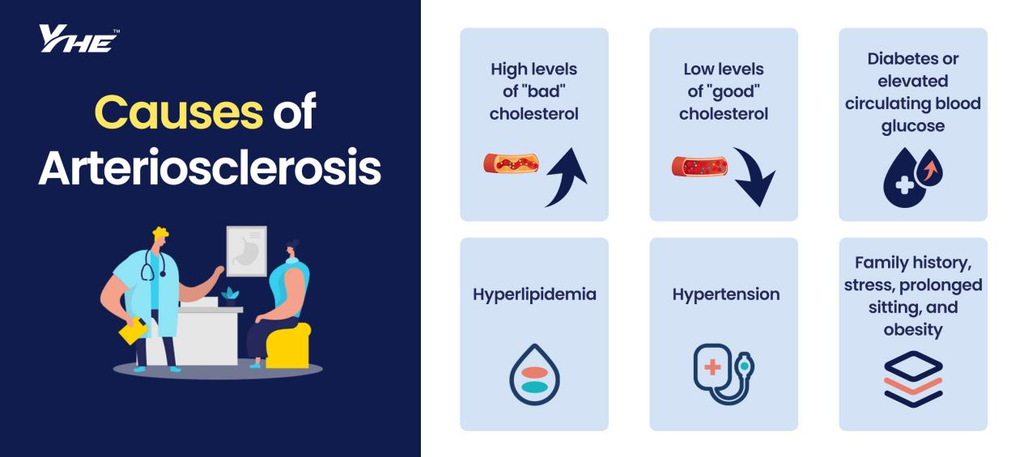
1.High levels of "bad" cholesterol: "Bad" cholesterol, also known as low-density lipoprotein (LDL), builds up on the walls of blood vessels and narrows the vessels. Finally, arteries end up clogged.
2.Low levels of "good" cholesterol: "Good" cholesterol, also known as high-density lipoprotein (HDL, high-density lipoprotein), is as opposed to "bad" cholesterol. HDL absorbs excess cholesterol in the blood and takes it back to the liver, where cholesterol is broken down and excreted from the body. So high levels of "good" cholesterol reduce the risk of clogged arteries, whereas low levels of "good" cholesterol make blood vessels more likely to clog.
3.Hyperlipidemia: Hyperlipidemia means your blood has too many lipids (or fats). It can damage liver function, lead to vascular sclerosis, lumen stenosis, etc., and induce cardiovascular and cerebrovascular diseases.
4. Hypertension: The higher the blood pressure, the greater the pressure on the blood vessels. Long-term effects of high blood pressure will damage and deform the lining of blood vessels. But hypertension and clogged arteries actually have a more complex relationship, which we will explain later in this article.
5.Diabetes or elevated circulating blood glucose is also a major cause: Even people with elevated sugar levels but not yet diabetic levels, such as those with metabolic syndrome, have an increased risk of plaque build-up in blood vessels, which can lead to hardening of the arteries.
6.Other Risk Factors: Family history, stress, prolonged sitting, and obesity also increase the risk of arteriosclerosis.
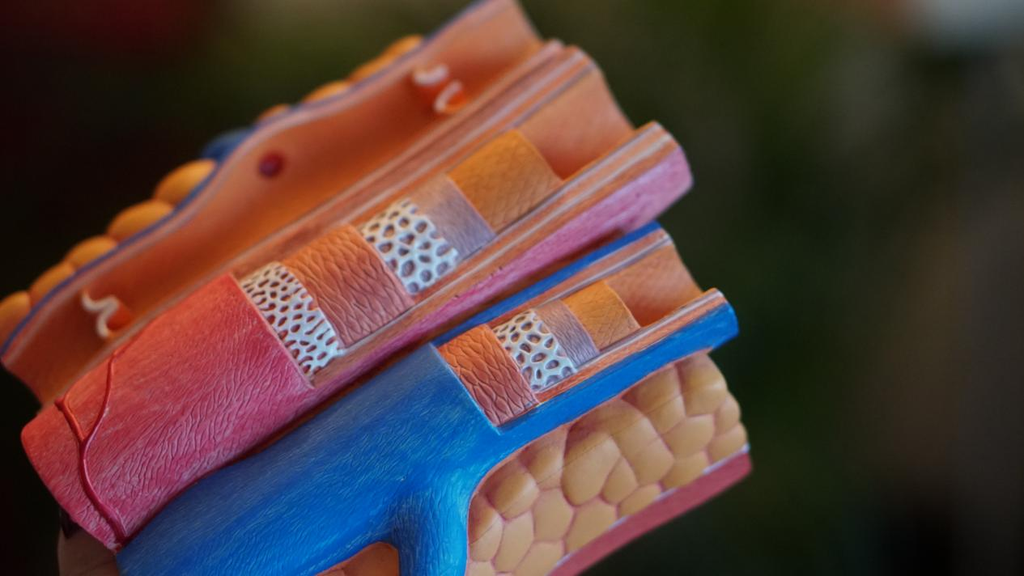
The Relationship Between Blood Pressure and Arteriosclerosis
As mentioned before, high blood pressure could be one of the causes of blood vessel blockage. What makes things worse is high blood pressure can continue to exacerbate the consequences of arteriosclerosis. Long-term hypertension can lead to changes in arterial structure and a decrease in the elastic function of large arteries. When you are hypertensive, the pulse pressure (the difference between the higher and lower numbers of your blood pressure)has increased. The increase of pulse pressure will cause the elastic components of blood vessels to fatigue and rupture easily, which can easily damage the intima, rupture the plaque, and cause thrombosis, thereby causing cardiovascular events.
In turn, arteriosclerosis may also be the cause of high blood pressure. Blood pressure is determined by the amount of blood pumped by the heart and the resistance to blood flow in the arteries. Plaque narrows the space for blood to pass through. In the end, clogged arteries lead to a pathological increase in blood pressure. Abnormal blood pressure and changes in arterial structure interact with each other, forming a vicious cycle.
Another goal of future antihypertensive therapy will be lowering the degree of arterial wall stiffness. Therefore, not only lowering blood pressure but also lowering PWV (a measure of arterial vascular stiffness) is essential and is the key to lowering blood pressure. 【1】
How to Prevent/Relieve Arteriosclerosis in Life
1. Try to avoid the intake of artificial trans fats. Do not smoke, and control alcohol consumption. Eating too much man-made trans fats raises levels of "bad" cholesterol (LDL) and lowers levels of "good" cholesterol (HDL); smoking and drinking alcohol lower levels of "good" cholesterol.
What is the optimal levels of HDL cholesterol?
Cholesterol levels are measured in milligrams (mg) of cholesterol per deciliter (dL) of blood or millimoles (mmol) per liter (L). For HDL cholesterol, higher numbers are better.【2】

HDL Level
2.Eat less and exercise more, control blood lipids, and weight.

3. Measure blood pressure regularly and pay attention to changes in blood pressure. Whether it is to prevent arteriosclerosis or high blood pressure, it is necessary to consciously check blood pressure regularly. For hypertension measurement, please check our previous blog: 《Hypertension Management in the Digital Age》
Adhering to good living habits and establishing awareness of health monitoring can help us avoid many diseases. The YHE BP Doctor Pro is a blood pressure-based wearable device. In addition to blood pressure monitoring, it also includes heart rate, HRV, blood oxygen, sleep, exercise, etc., covering all aspects of important health indicator monitoring. Take care of your body health on a daily basis, you will appreciate yourself for that in the future!
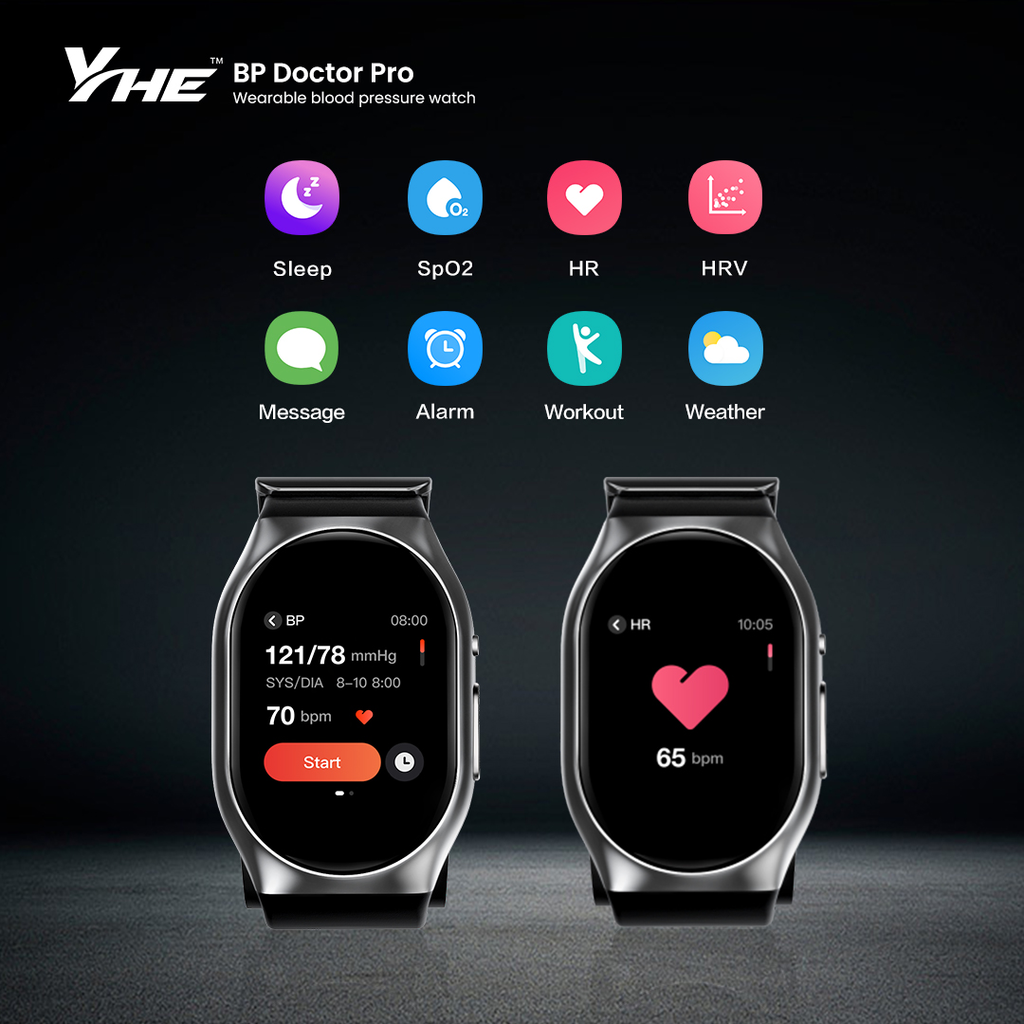
References:
1.Ren Jie, Yin Ying, Effects of hypertension and abnormal glucose metabolism regulation on arteriosclerosis
2.Grundy SM, Stone NJ, Bailey AL, Beam C, Birtcher KK, Blumenthal RS, et al. 2018 AHA/ACC/AACVPR/AAPA/ABC/ACPM/ADA/AGS/APhA/ASPC/NLA/PCNA Guideline on the Management of Blood Cholesterol: A Report of the American College of Cardiology/American Heart Association Task Force on Clinical Practice Guidelines. Circulation. 2019;139(25):e1082–e1143.
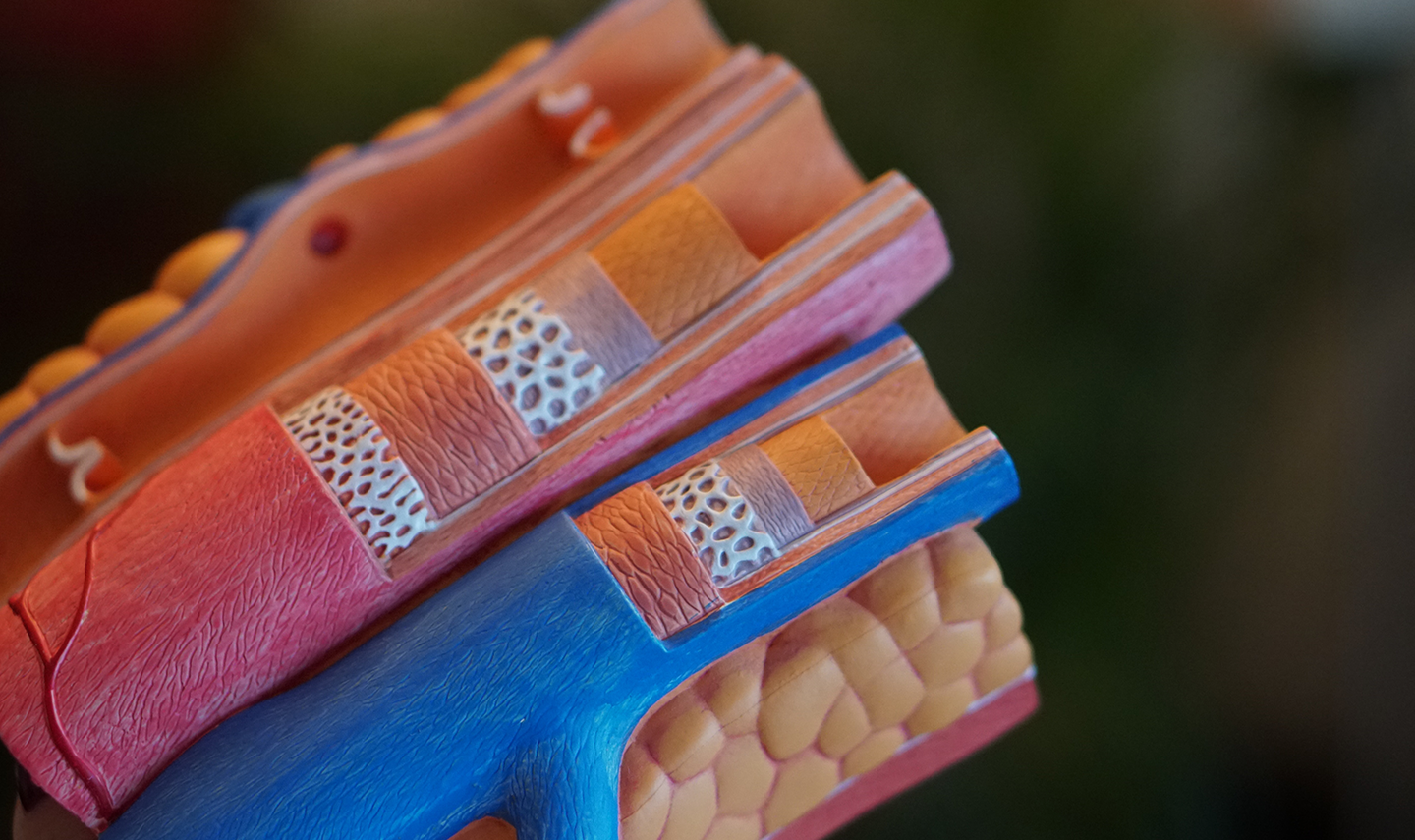
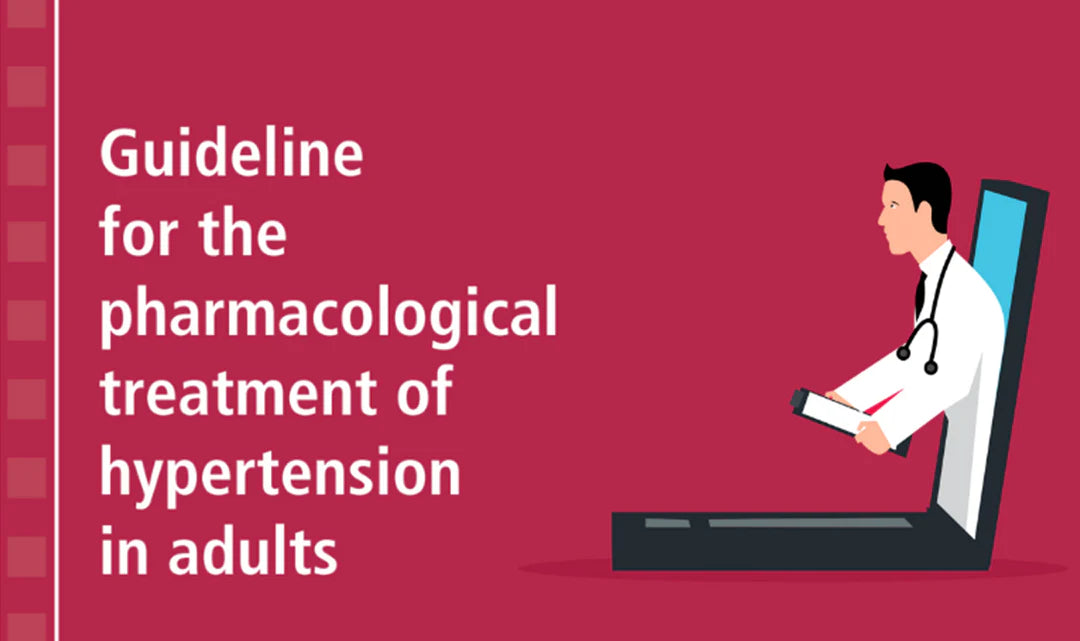

Leave a comment
This site is protected by hCaptcha and the hCaptcha Privacy Policy and Terms of Service apply.